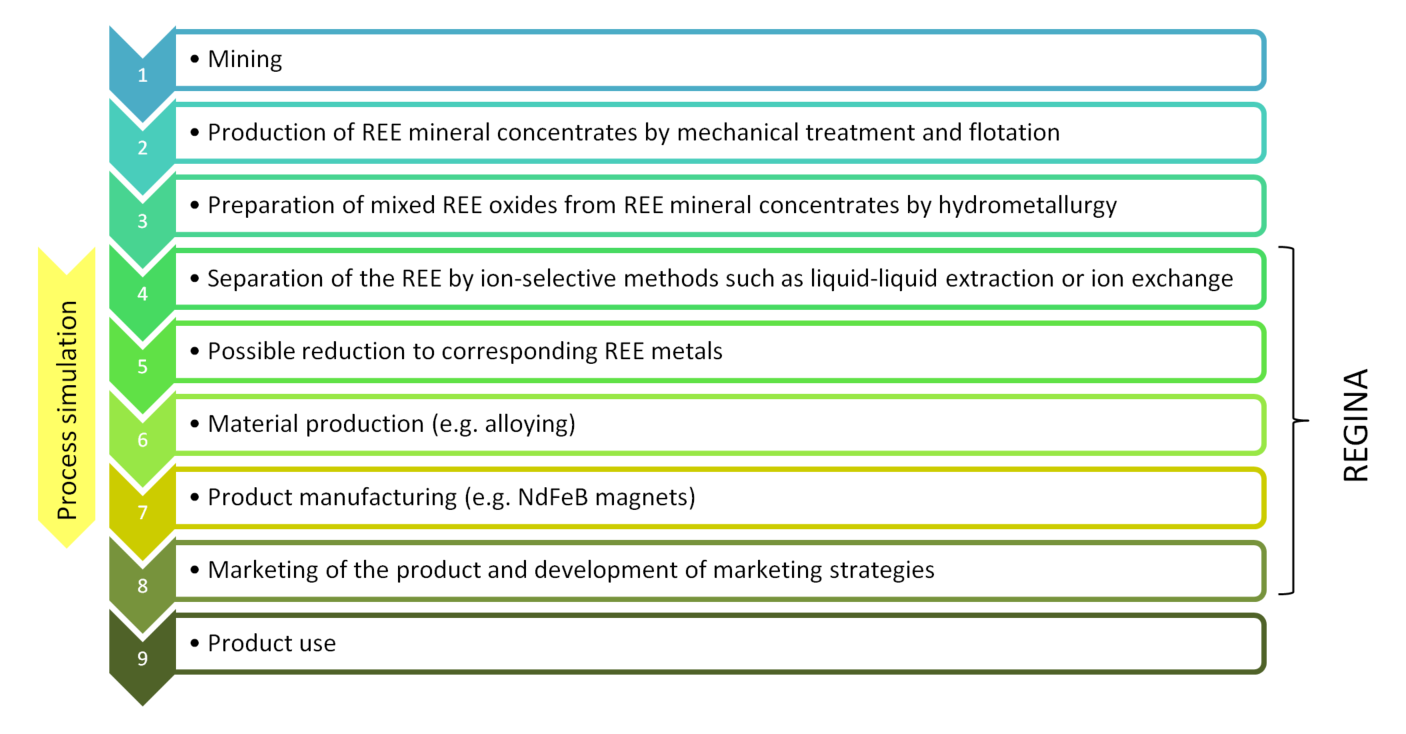Decent work and economic growth
Responsible consumption and production
Partnerships for the goals
Coordinator: Fraunhofer Research Institution for Materials Recycling and Resource Strategies IWKS
Contact Person: Dr. Andrea Gassmann
Address: Brentanostr. 2a, 63755 Alzenau
Phone@tel
Email: @email
Project partners
- Helmholtz-Zentrum Dresden - Rossendorf e. V., Freiberg
- Clausthal University of Technology
- RWTH Aachen University
- KME Germany GmbH & Co. KG, Osnabrück
- Darmstadt University of Technology
- GMB Deutsche Magnetwerke GmbH, Bitterfeld-Wolfen
- DMT-Gesellschaft für Lehre und Bildung mbH, Bochum
Project partners in Brazil
- Universidade Federal de Santa Catarina, Florianópolis
- Universidade de São Paulo
- Fundação Centros de Referência em Tecnologias Inovadoras, Florianópolis
- Instituto de Pesquisas Tecnológicas, São Paulo
- Centro de Tecnologia Mineral, Rio de Janeiro
- Companhia Brasileira de Metalurgia e Mineração, Araxá
- Companhia de Desenvolvimento de Minas Gerais
- WEG S.A., Jaraguá do Sul
Rare Earth Global Industry and New Applications
Conventional production of so-called high-performance permanent magnets requires the use of rare earths. Their mining is usually associated with significant environmental impacts. Changes, especially in the mobility and energy sectors, will significantly increase the global demand for high-performance permanent magnets and therefore also for rare earths. The world's second largest reserves of rare earths are in Brazil. However, this potential remains largely untapped. The REGINA project is laying the foundation for an ecologically optimised Brazilian magnet industry from domestic resources as well as developing a value chain for competitive neodymium-iron-boron-based permanent magnets.
From untapped potential in the field of rare earths for the production of magnets
Since electromobility and the provision of energy from wind power have gained in importance worldwide, Brazil has a special role to play, both nationally and internationally, with its wealth of economically strategic raw materials. Brazil has the potential to become the second largest producer of raw materials after China, especially with regard to the 22 million tons of rare earth reserves. Currently, not only the raw materials required for magnet production, but also the magnets themselves, are mainly produced in China.
For Brazilian mining and metals companies, the sustainable raw material development of rare earth elements (REE) as well as resource-efficient metal production and end product production present great challenges, especially against the background of China's dominant position. The goal of REGINA is therefore to provide a basis for ecologically optimised industrial implementation of the value chain for high-performance permanent magnets, starting from mixed rare earth oxides to the production of neodymium-praseodymium-iron-boron (Nd/Pr-Fe-B-) magnets.

Objective: Production of competitive "green" high performance magnets
For the production of "green" high-performance magnets, REGINA is striving for ecological optimisation of the entire value chain. First, neodymium/praseodymium compounds are separated from the rare earth element-oxide mixture occurring in the Brazilian mine Araxá and then reduced to neodymium/praseodymium metals, so-called didymium. On the basis of this didymium composition, magnet alloys and magnets with properties which have the best possible combination of the highest possible functionality and the lowest possible ecological impact are produced (see figure 2).
In the production of high-performance permanent magnets from Brazilian sources, REGINA aims to optimise all processes along the value chain in terms of production costs and environmental impact. On the one hand, this is done with an eye to economical competitiveness. On the other hand, the product should differentiate itself from other magnet manufacturers with the unique "green magnet" selling point. The experimental work is therefore accompanied by a process simulation and life cycle assessment. This methodology creates the basis for the realisation of ecologically more sustainable magnet production.
Positioning in the market
Based on market studies, empirical market research and a SWOT analysis, basic knowledge for the development of magnet marketing strategies will be developed. On the basis of these findings, Brazil and its companies should be able to strategically and sustainably position themselves in the world market. For this purpose, concrete recommendations for action and measures will be developed in the project to create a win-win situation for Brazil as well as for the German economy through sustainability. The results are to be applied in a concrete business model which is both economically viable and takes into account environmental and social impacts.

